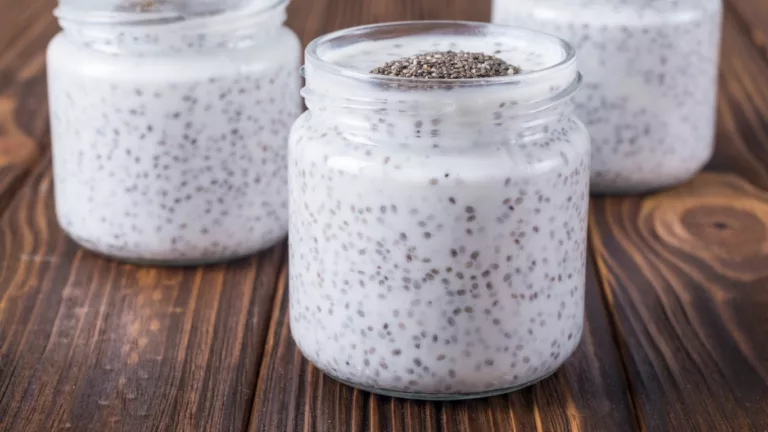Can Oranges Trigger Acid Reflux? – Everything You Need to Know
Wondering if those juicy oranges are causing your acid reflux? You’re not alone! Many people wonder whether their favorite citrus fruits are triggering heartburn or making acid reflux worse. Let’s dive into the connection between oranges and acid reflux, and figure out how you can still enjoy your fruit without the discomfort.
If you’ve got acid reflux, you know the struggle. It’s that uncomfortable burning feeling in your chest (hello, heartburn!) that happens when stomach acid makes its way up into your esophagus. And sometimes, certain foods can make those symptoms worse. One of the most common culprits? Citrus fruits, like oranges.
But wait—does that mean you have to say goodbye to oranges forever? Not necessarily! Let’s talk about why oranges can sometimes trigger acid reflux, but also how to enjoy them in moderation and what alternatives might work better for your digestive health.

Why Citrus Fruits Like Oranges Can Trigger Acid Reflux
Citrus fruits like oranges, lemons, and grapefruits are known for their tangy, refreshing taste, but they’re also quite acidic. The high acidity in these fruits can irritate the lining of the esophagus, making it more likely for stomach acid to cause a burning sensation or discomfort. This is particularly problematic for people who suffer from gastroesophageal reflux disease (GERD), where acid reflux occurs more frequently and intensely.
Now, not everyone with acid reflux will experience a flare-up after eating oranges, but if you’re sensitive to acidity, it could definitely make your symptoms worse. So, what’s happening on a deeper level? When you eat something acidic, your stomach might produce more acid to help digest the food. If there’s too much acid, it can leak into the esophagus, causing irritation and that awful heartburn feeling.

Can Everyone with Acid Reflux Eat Oranges?
The answer isn’t as clear-cut as “yes” or “no.” Everyone’s body reacts differently to different foods. While citrus fruits are a common trigger for many people with acid reflux, they may not be a problem for everyone. Some people with acid reflux can enjoy oranges in moderation without experiencing symptoms, while others may find that even a small amount of citrus can cause discomfort.
If you’re someone who loves oranges but suffers from acid reflux, there’s no need to cut them out completely right away. Instead, try paying attention to how your body reacts after eating them. If you notice that eating oranges (or drinking orange juice) gives you a burning sensation in your chest or throat, you might want to limit your intake.

The Science Behind Acid Reflux and Oranges
Oranges are naturally high in citric acid, which can trigger acid reflux symptoms in a few different ways. First, citric acid can increase the acidity in the stomach. When your stomach acid levels rise, they’re more likely to flow back into the esophagus, causing irritation. Second, the acidic nature of oranges may weaken the lower esophageal sphincter (LES)—that little muscle that keeps stomach acid from creeping back up.
Once the LES is weakened, it becomes easier for stomach acid to make its way up the esophagus, leading to that all-too-familiar heartburn. This is why citrus fruits, including oranges, can be a problem for people who already have a weak LES or have frequent acid reflux issues.
Are There Any Benefits to Eating Oranges with Acid Reflux?
Before you totally rule out oranges, let’s talk about the positives. Oranges are packed with vitamin C, fiber, and antioxidants, making them a great addition to your diet in general. Vitamin C helps boost your immune system, while fiber supports healthy digestion. However, these benefits don’t mean you should ignore your body’s signals if oranges tend to trigger your acid reflux.
For some, eating oranges in smaller portions or combining them with non-acidic foods might make them easier to tolerate. For example, pairing an orange with a handful of nuts or a bowl of oatmeal could help buffer the acidity and make it gentler on your stomach.

How to Enjoy Oranges Without Triggering Acid Reflux
If you’re really craving that citrusy taste but want to avoid the heartburn, here are some tips to keep in mind:
- Stick to Small Portions: Rather than eating a large orange, try a few slices. Smaller amounts can help reduce the risk of triggering acid reflux.
- Pair with Low-Acidity Foods: Combine oranges with foods that are gentle on the stomach. Think oatmeal, yogurt, or almonds. This helps balance out the acidity and reduces the chance of reflux.
- Go for Whole Oranges Over Juice: Orange juice is often more concentrated and can be more acidic than whole oranges. If you can, opt for the whole fruit to reduce acidity levels.
- Avoid Eating Right Before Bed: Eating oranges or any acidic food close to bedtime can make reflux worse. Give your body time to digest before lying down—try to eat your oranges at least a couple of hours before bed.
- Test Your Tolerance: Everyone’s different! Some people with acid reflux can tolerate oranges in small amounts, while others need to avoid them entirely. Listen to your body, and adjust accordingly.
Alternatives to Oranges for Acid Reflux
If oranges aren’t sitting well with your stomach, don’t worry—there are plenty of other fruits that are gentler on your digestive system. Here are a few options to try:
- Bananas: These are a great alternative for acid reflux sufferers. They’re mild and can help neutralize stomach acid.
- Melons: Cantaloupe and honeydew are less acidic and can be a good option if you want something refreshing.
- Apples: Most varieties of apples are low in acid and gentle on the stomach, making them a safer choice for acid reflux.
- Pears: Like apples, pears are less acidic and easy to digest.
Conclusion: Can Oranges Trigger Acid Reflux?
Yes, oranges can trigger acid reflux for some people, especially those with GERD or a sensitivity to acidic foods. But that doesn’t mean you have to give them up forever. If oranges cause you discomfort, try eating them in small portions, pairing them with less acidic foods, and sticking to whole fruit instead of juice. And if you’re still having trouble, there are plenty of other fruits out there that can offer similar nutritional benefits without the heartburn.
Appendices
References
- American College of Gastroenterology. (2023). Understanding Acid Reflux and GERD. Read Article
- National Institute of Diabetes and Digestive and Kidney Diseases. (2023). Gastroesophageal Reflux Disease (GERD). Read Article
- Smith, J., & Thompson, R. (2022). Diet and Gastroesophageal Reflux Disease: A Comprehensive Guide. Journal of Digestive Health, 45(3), 102-110.
FAQs
- Can I eat oranges if I have GERD?
Oranges may trigger GERD symptoms for some people due to their high acidity, but others may tolerate them in small amounts. It’s best to monitor your symptoms and eat oranges in moderation if they don’t cause discomfort. - Are there any citrus fruits that are better for acid reflux?
While all citrus fruits are acidic, fruits like lemons and limes tend to be slightly less acidic than oranges. However, it’s still important to monitor your body’s response to citrus fruits. - Is orange juice bad for acid reflux?
Orange juice can be more concentrated and acidic than whole oranges, making it a common trigger for acid reflux. If you want to enjoy orange juice, try diluting it with water. - Can I drink water after eating oranges?
Drinking water after eating oranges is generally safe and can help wash away any acid that may linger in your mouth, but avoid drinking large amounts immediately after to prevent increasing stomach acid. - Are there any foods I should avoid if I have acid reflux?
Avoid spicy foods, fatty foods, chocolate, caffeine, and citrus fruits like oranges if they trigger your acid reflux. Instead, opt for bland, low-acid foods like bananas and oatmeal.
Disclaimer: The information provided in this article is for educational purposes only and does not substitute for professional medical advice. Always consult with your healthcare provider regarding any dietary concerns or acid reflux symptoms. Individual tolerance may vary.

Camellia Wulansari is a dedicated health writer specializing in digestive disorders, contributing valuable insights and information to the health and wellness community. With a passion for promoting well-being through knowledge, Camellia serves as a reliable source of expert content on healthusias.com.






